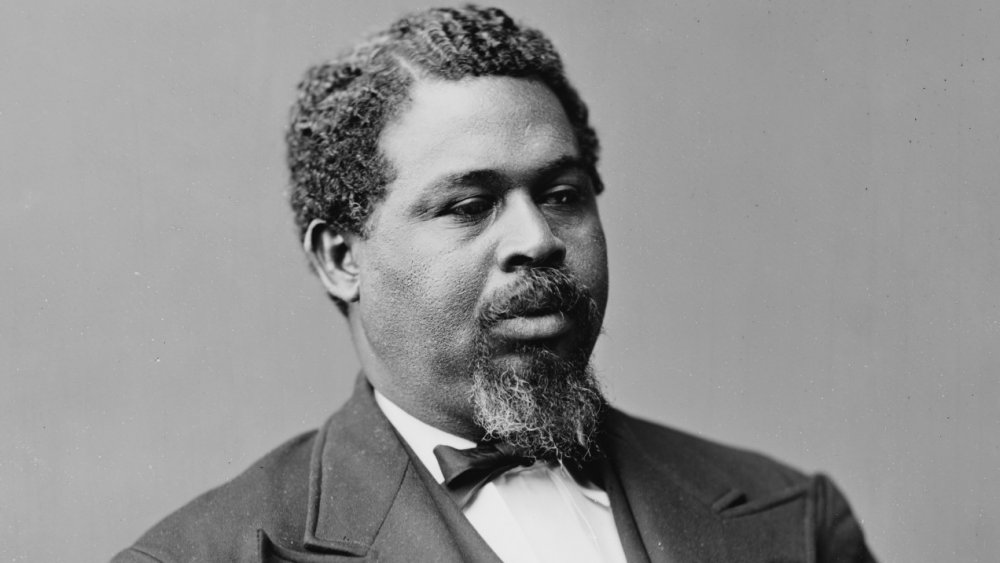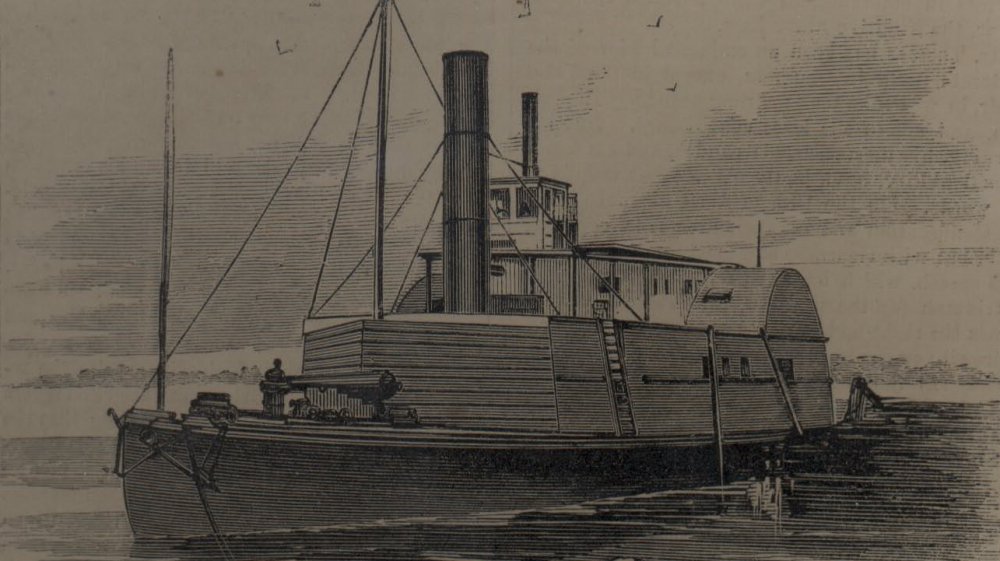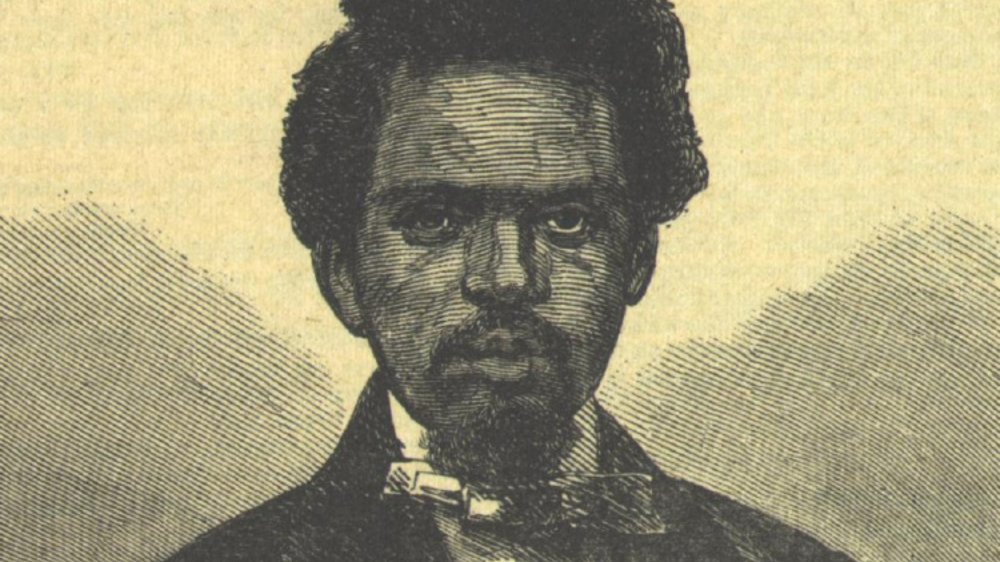The Incredible Life Of Robert Smalls
On September 22, 1862, brash trash-talker and man-thrashing wrestler Abraham Lincoln delivered his preliminary Emancipation Proclamation, which stated that slaves in any Confederate state still rebelling against the U.S. on January 1, 1863 "shall be then, thenceforward, and forever free." But not even the commander in chief could — as Martin Luther King, Jr. would put it more than a century later — "set the timetable for another man's freedom." Four months before Lincoln's proclamation, Robert Smalls emancipated himself and 16 other slaves, including his wife and children.
As PBS describes, on May 13, 1862, Smalls pulled off an audacious predawn escape by posing as the captain of a Confederate cotton steamer called the Planter. While the white officers were off partying or visiting family, he stole the ship and stole away. He obscured his face with the captain's straw hat and cleared Confederate checkpoints by using signals he learned while being rented out to work aboard the ship. After surrendering the Planter to Union troops Smalls performed more feats of heroism as a Civil War naval captain. In the postwar era he fought for racial equality as a lawmaker and philanthropist, all while continuing to be an epic badass. Here's the incredible story of Robert Smalls.
Rebelling against the rebels
The son of a house slave named Lydia, Robert Smalls was born behind his owner's house in Beaufort, South Carolina in 1839. His father remains unknown. But as PBS observes, it was common for female slaves to be raped by their masters, and the site writes that slave owner John Mckee, his son Henry, or plantation manager Patrick Smalls are thought to have fathered Robert. That may explain why the child received special treatment, even being allowed to play with white children, via We Are the Mighty. He violated the town curfew for blacks, landing him in jail, but Henry Mckee repeatedly bailed him out.
Lydia worried that her son would grow up believing in a whitewashed version of slavery, so she sent Smalls to labor in the fields and witness the vicious reality of the "whipping post." Later she asked the McKees to rent him out in Charleston, where he worked aboard the Planter. He got to keep a $1 of his wages and sent the rest to his owner. In Charleston, Smalls also met his wife, Hannah, a slave with whom he had two children. He resolved to buy his family's freedom, but their owners demanded $800, and he was $700 short. So while the Civil War raged, he rebelled against the Rebels.
Great things come in Smalls packages
When Robert Smalls delivered his fellow slaves to freedom and the Planter to Union forces in 1862, the U.S. was so impressed, per PBS, that Congress passed a bill enabling the navy to appraise the Planter and pay its formerly enslaved crew half the value. Smalls also received $1,500, which he later used to buy his former owner's house. During the Civil War, he embarked on 17 military missions. Initially, he served under a white captain, but in 1863, Smalls was large and in charge after the Planter came under heavy fire and the captain hid in a "coal bunker." Smalls once again steered the ship safely past Confederate forces and was rewarded by being promoted to captain.
After the war Smalls continued to make history, becoming a South Carolina senator and serving five terms in the U.S. Congress. The Lowcountry Digital History Initiative writes that he co-authored legislation establishing free public education for both black and white children in South Carolina. According to the National Constitution Center, Smalls orchestrated one of the nation's first mass transportation boycotts, founded a school for black children, and started a newspaper. He died in 1915 owning the home where he was once owned.


